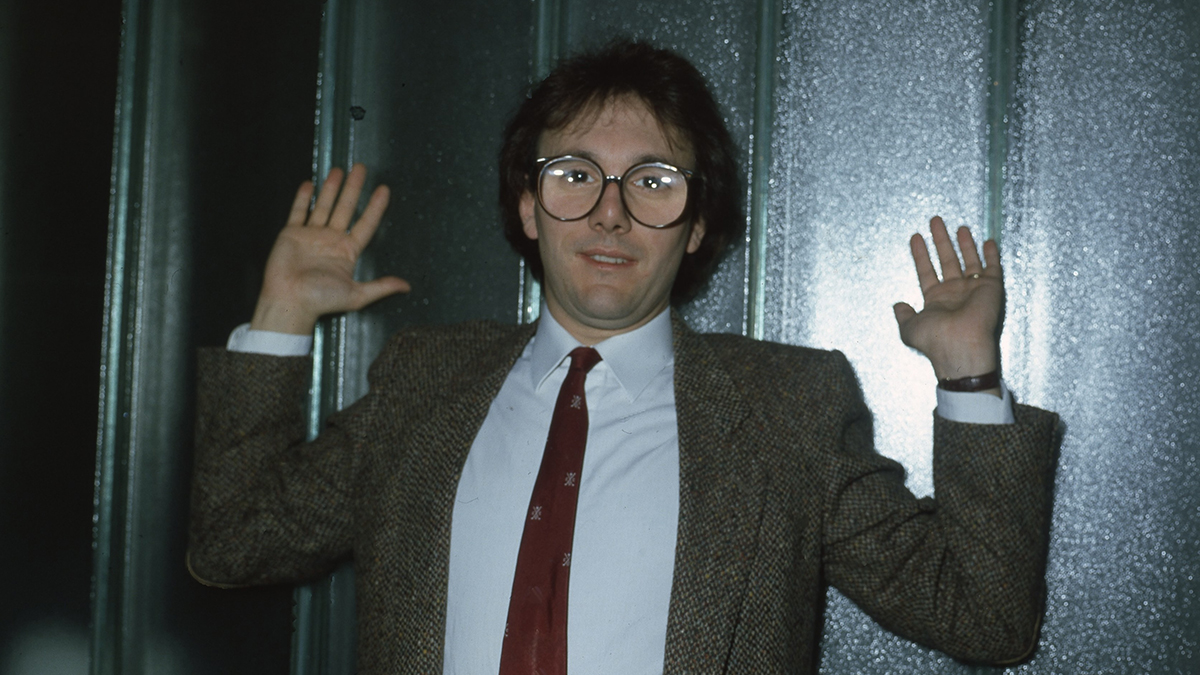“I had a bit of a shock because I’d just come from working with Yes, who had done 1,000s of live shows and were all brilliant players. Frankie Goes To Hollywood had done 5 shows and they could barely play”: Trevor Horn on the making of Relax
“We thought that all the record labels would be after them. Nobody wanted them”

Video Killed The Radio Star, according to The Buggles, but this was also the song that convinced the band’s singer and bassist, Trevor Horn, that his future lay behind a mixing desk rather than on the road
“I’d dragged my arse all the way round Europe with Video Killed The Radio Star,” says Horn in a newly uploaded 2024 interview with Top 2000 a gogo. “I’d been on so many TV shows in so many different countries, miming all the time. The boredom of having to do that over and over again put me off being an artist. I really wanted to get back in the studio because that’s really where I came from.”
This was in the early ‘80s, which Horn remembers as an “extremely exciting time”. And, in his mind, all the good stuff was going to be happening in the studio.
Cut to 1983 and Horn was watching The Tube, the British music TV show that, as well as showcasing some of the bigger artists of the day, liked to shine a light on unsigned ones. It was here that Horn saw a then unknown band called Frankie Goes To Hollywood performing an early version of Relax, a song that immediately caught his attention.
“I was driving home from the studio one night and I heard it again, on the radio, and when I heard it again the song really registered with me. I thought, ‘that’s a really catchy song,’” says Horn.
Sensing that he could do something with it, Horn decided that he wanted to sign Frankie to his new record label, ZTT, but expected some competition.
“We thought that we were gonna have to fight all the record labels off,” he remembers. “We thought that all the record labels would be after them. Nobody wanted them, because it was all too gay and violent.
Get the MusicRadar Newsletter
Want all the hottest music and gear news, reviews, deals, features and more, direct to your inbox? Sign up here.
“All of that stuff didn’t bother me - I was just intrigued by the song. When I heard the song, I thought the song had something.”
Big mistake by those other record labels - huge, as it turns out. But although Relax ended up being a smash hit, topping the charts in the UK and becoming the biggest-selling debut single of all time, the process of making the track was no walk in the park.
“I had a bit of a shock because I’d just come from working with Yes,” says Horn. “And Yes had been going since the early ‘70s. And Yes had probably done thousands of live shows and they were all brilliant players. Frankie Goes To Hollywood had done five shows and they could barely play. But they signed to my record label so I had to figure out… what am I gonna do, you know?”

Horn goes on to say that he and the band worked on Relax for months. ‘Worked’ being the operative word.
“If they had been any other act that I was just doing as a job I would have walked away from it,” Horn admits. “It was too difficult. But because they were signed to my record label, I couldn’t walk away from it. I had to do something.”
It was all worth it, though, Relax’s success being all the more remarkable owing to the fact that, for a time, it was banned by the BBC on account of its racy lyrics. Certain concessions were made, though, with the band realising that they needed to tone down their look to achieve mainstream success.
“The band did it themselves because there comes a point where people want success, and you get a chance to be on Top Of The Pops,” says Horn. “They weren’t very keen on people who were wearing leather bum splitters with knives between their legs. It just doesn’t go down very well.”

I’m the Deputy Editor of MusicRadar, having worked on the site since its launch in 2007. I previously spent eight years working on our sister magazine, Computer Music. I’ve been playing the piano, gigging in bands and failing to finish tracks at home for more than 30 years, 24 of which I’ve also spent writing about music and the ever-changing technology used to make it.
You must confirm your public display name before commenting
Please logout and then login again, you will then be prompted to enter your display name.
